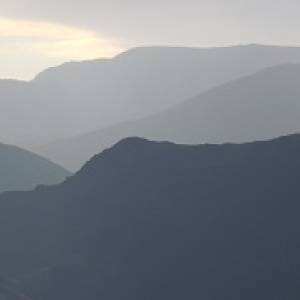Don Paterson
I braved Gretna to get some shoes having killed my last ones off … I’ve no idea when I bought them …probably last century, and I need some for the funeral coming up. I thought I’d press on and went to hear Don Patterson at Gatehouse. Afterwards I walked up Trusty’s Hill to see the Pictish stone carvings again https://www.blipfoto.com/entry/2503342485506362792 . Having read up a bit more I was curious to see if there was any sign of the ‘rock-cut basin’ that could have been some sort of holy well …
‘The Pictish carvings at Trusty’s Hill are located at one side of the entrance to the summit of the hill. On the other side of this entranceway is a rock-cut basin. Remembering the sixteenth century coins that the Minister of Anwoth mentions, this feature was still apparently used as a votive well in the late medieval period. Wells and watery places were much used for ritual purposes during the Iron Age in Britain and radiocarbon dates indicate that it was similarly used here at Trusty’s Hill during the sixth century AD.’ https://millonthefleet.co.uk/trustys-hill-and-dark-age-galloway/
The whole area was covered in head high Bracken so there was no chance of finding anything. Even the two deer were surprised to see me.
I camped over at Kirkcudbright after cooking my supper at a windy Carrick.
Two Trees - Don Paterson
One morning, Don Miguel got out of bed
with one idea rooted in his head:
to graft his orange to his lemon tree.
It took him the whole day to work them free,
lay open their sides, and lash them tight.
For twelve months, from the shame or from the fright
they put forth nothing; but one day there appeared
two lights in the dark leaves. Over the years
the limbs would get themselves so tangled up
each bough looked like it gave a double crop,
and not one kid in the village didn't know
the magic tree in Miguel's patio.
The man who bought the house had had no dream
so who can say what dark malicious whim
led him to take his axe and split the bole
along its fused seam, and then dig two holes.
And no, they did not die from solitude;
nor did their branches bear a sterile fruit;
nor did their unhealed flanks weep every spring
for those four yards that lost them everything
as each strained on its shackled root to face
the other's empty intricate embrace.
They were trees, and trees don't weep or ache or shout.
And trees are all this poem is all about.

Comments
Sign in or get an account to comment.


